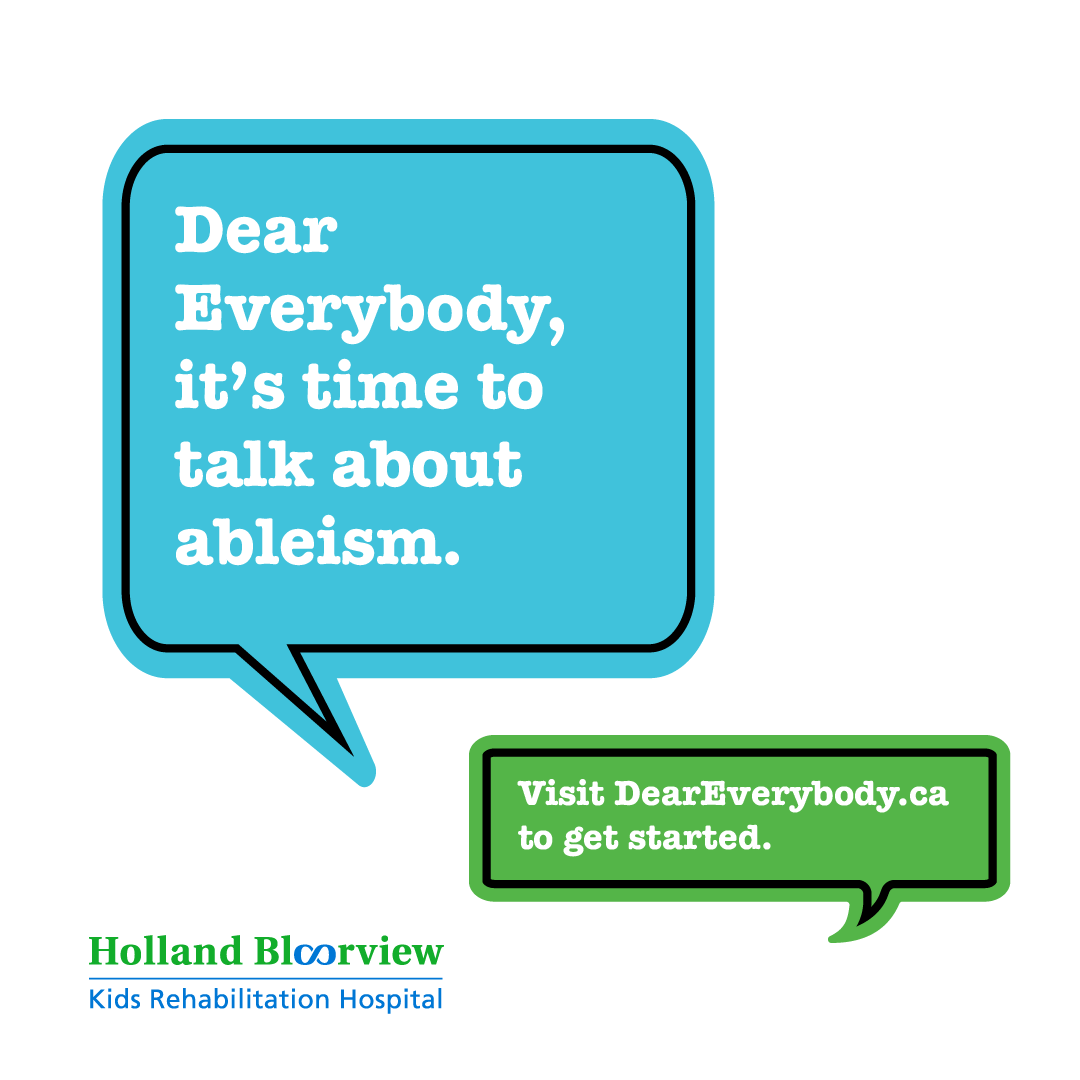Challenge
the assumption that kids and youth with disabilities lead less fulfilling lives.
Understand
that disability is part of life and should not be viewed as inherently tragic or inspirational.
Listen and learn
from the experiences of kids and youth with disabilities.
Consider
the person first, before their disability. Disability is just one part of a person’s identity.
Teach
those around you that difference is valuable and part of being human.
Actively
invite kids and youth with disabilities to join your social and community activities.
Share
the message that kids and youth with disabilities belong in your community, classroom, and workplace.
Stop
using negative and ‘ableist’ language, like “confined to a wheelchair” or “suffers from a disability” that implies having a disability is bad. Instead use, “uses a wheelchair” or “has a disability.”
Respect
how each individual chooses to describe themselves and their disability. For example, some people use “autistic person,” while others use “person with autism.”
Celebrate
differences!
Take accountability
to prioritize and support diversity in your life and take action when you witness stigma and exclusion.
Self-reflect
about your own views about disability and acknowledge your own biases and exclusionary actions.


